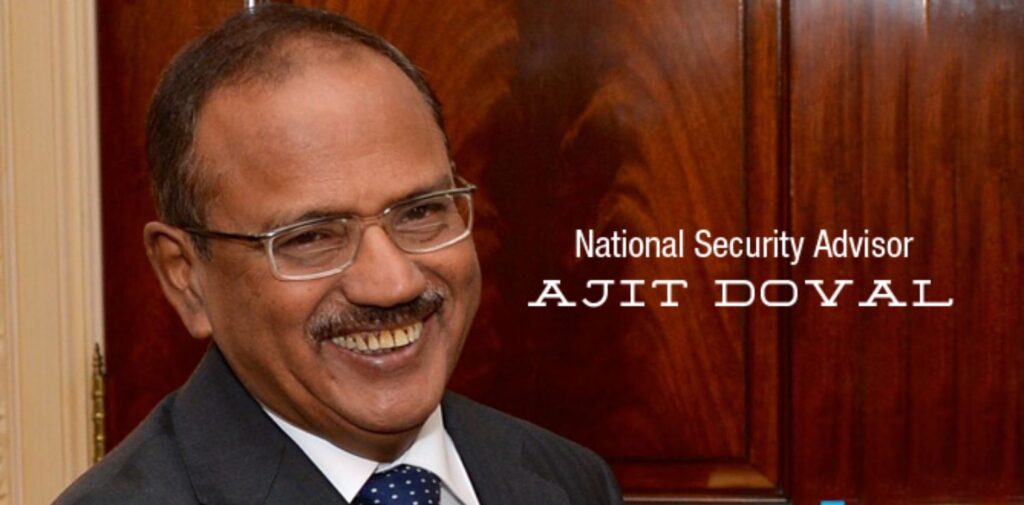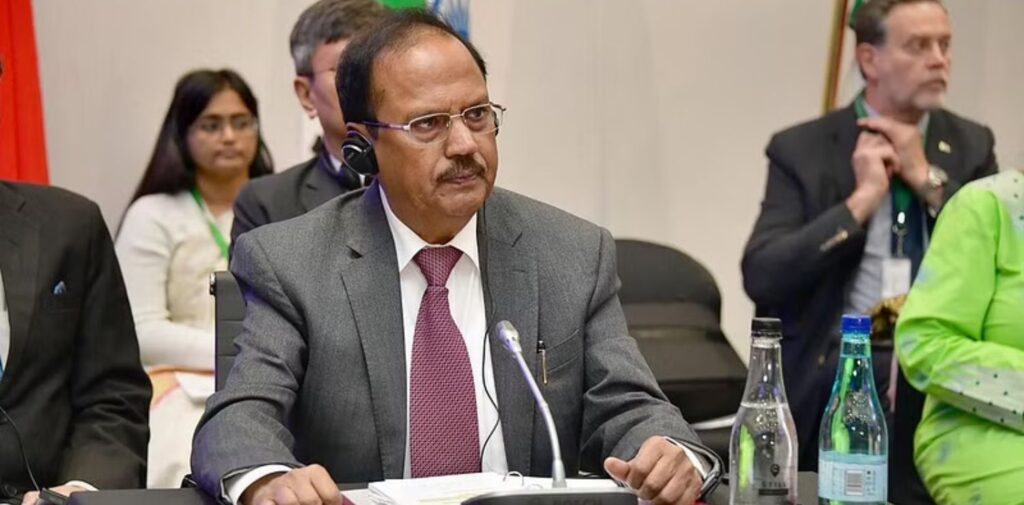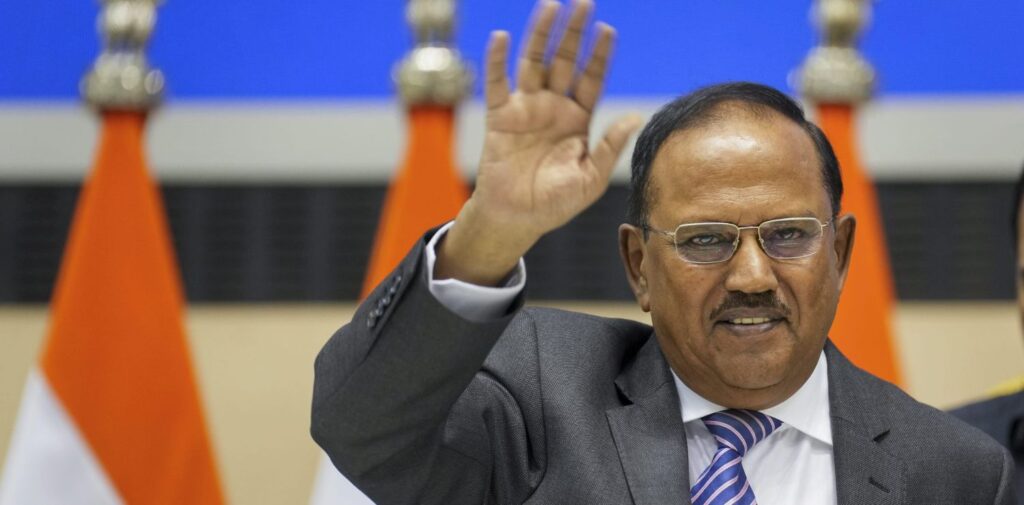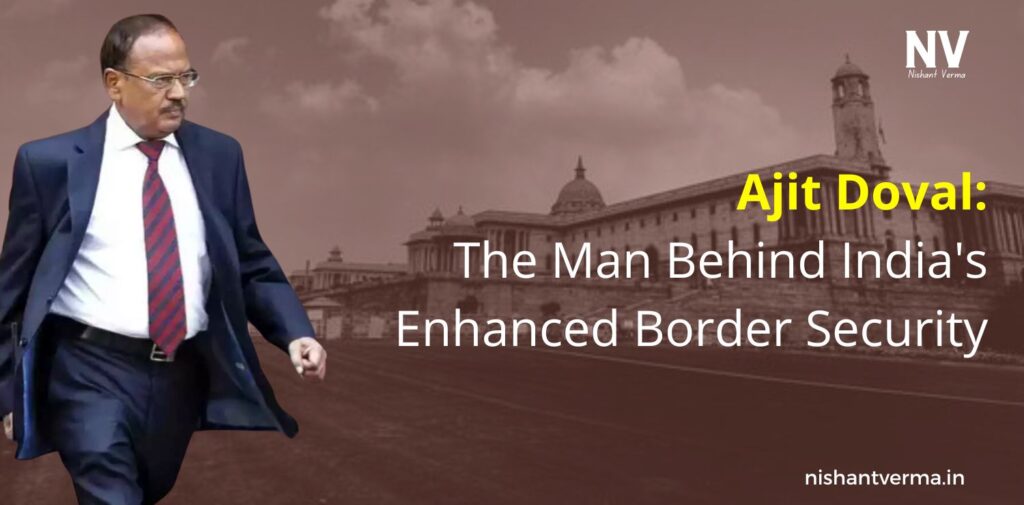India’s national security landscape has undergone a significant transformation over the past decade, thanks to one man whose vision and strategic insight have shaped the country’s defense policies. Ajit Doval, India’s National Security Advisor (NSA), has played an instrumental role in revolutionizing India’s approach to border security. With decades of experience in espionage, counter-terrorism, and strategic planning, Doval’s contributions have made India’s borders more secure than ever before.
In this article, we will delve into the key achievements of Ajit Doval, highlighting the moments where he proved his mettle and his unwavering commitment to safeguarding India’s sovereignty.
A Lifetime of Service: Ajit Doval’s Journey in Security
Ajit Doval’s career in national security spans over 50 years, starting from his early days as an officer in the Indian Police Service (IPS). Born in Uttarakhand in 1945, Doval joined the Kerala cadre of the IPS in 1968. His exceptional performance and sharp intelligence soon earned him a place in the Intelligence Bureau (IB), where he rose to become the Director.
One of Doval’s most remarkable achievements during his tenure at IB was his role in counter-insurgency operations. His work in the 1980s, particularly in Punjab and Kashmir, helped dismantle militant networks and restore law and order in these regions. Doval’s reputation as a field operative, capable of working undercover in hostile territories, grew with each successful mission. His ability to think ahead and act decisively has defined his career, making him the go-to man for India’s most critical security challenges.

Revamping Border Security: Doval’s Strategic Vision
When Ajit Doval was appointed National Security Advisor in 2014, India was facing numerous challenges on its borders, particularly with Pakistan and China. Doval brought his vast experience in counter-terrorism and intelligence to the role, adopting a proactive approach to border security.
- The Surgical Strikes of 2016: One of the most high-profile actions under Doval’s tenure was the surgical strikes carried out by the Indian Army in September 2016. After a terror attack on an Indian Army camp in Uri, which claimed the lives of 19 soldiers, India responded with surgical strikes across the Line of Control (LoC) in Pakistan-occupied Kashmir (PoK). These strikes targeted terrorist launch pads, and the success of the operation sent a strong message to Pakistan that India would not tolerate cross-border terrorism. Doval played a key role in the planning and execution of these strikes. His strategic foresight ensured that the operation was swift, precise, and carried out with minimal casualties. The surgical strikes were a turning point in India’s defense strategy, signaling a shift from defensive posturing to offensive defense.
- Balakot Airstrikes: In February 2019, following the Pulwama attack, where 40 Central Reserve Police Force (CRPF) personnel were killed in a suicide bombing by Jaish-e-Mohammed, India launched airstrikes on a terrorist training camp in Balakot, Pakistan. This marked the first time since 1971 that India had crossed the international boundary with Pakistan to carry out airstrikes. Ajit Doval was the key architect behind this bold move. His leadership and coordination with the Indian Air Force and intelligence agencies ensured that the mission was a success. The Balakot airstrikes demonstrated India’s capability and willingness to take strong action against terror outfits, reinforcing Doval’s doctrine of deterrence through strength.

Strengthening India’s Northern Borders
While the focus has often been on India’s western border with Pakistan, Doval has also been instrumental in addressing challenges along the northern border with China. Tensions with China have been a longstanding issue, particularly in areas like Ladakh and Arunachal Pradesh.
- Doklam Standoff: In 2017, India and China were involved in a tense standoff at the Doklam plateau, a strategically important region near the India-Bhutan-China tri-junction. China’s construction of roads in the disputed area was seen as a threat to India’s security. The standoff lasted for over two months, but through skilled diplomacy and negotiation, India managed to defuse the situation without any escalation to military conflict. Doval’s role in resolving the Doklam crisis was pivotal. As NSA, he worked behind the scenes, engaging in diplomatic discussions while ensuring that India maintained a strong military presence on the ground. His handling of the situation showcased his ability to combine diplomacy with military preparedness, ensuring India’s interests were protected without resorting to war.
- Galwan Valley Conflict: The border tensions with China escalated again in 2020 when clashes broke out between Indian and Chinese troops in the Galwan Valley. The skirmishes resulted in the loss of lives on both sides, marking the first combat fatalities along the India-China border in over four decades. In the aftermath, Doval played a critical role in the de-escalation process, engaging with Chinese officials at the highest levels. His firm stance ensured that China agreed to a mutual disengagement process, leading to a restoration of relative peace along the Line of Actual Control (LAC).
The Internal Security Maestro
Doval’s expertise extends beyond just securing India’s borders. He has also been at the forefront of addressing internal security challenges, particularly in areas affected by insurgency and terrorism.
Kashmir Post-Article 370:
The revocation of Article 370 in August 2019, which granted special status to Jammu and Kashmir, was one of the most significant political moves in India’s recent history. The decision was met with both support and opposition, with concerns about the potential for unrest in the region. Ajit Doval was tasked with ensuring that the situation in Kashmir remained under control.
Doval’s strategy involved a combination of security measures and outreach to the local population. He personally visited Kashmir, walking through the streets of Srinagar to interact with locals and assess the ground situation. His efforts helped maintain relative peace in the region, despite initial fears of widespread violence.
Counter-Terrorism Operations:
Under Doval’s leadership, India’s counter-terrorism operations have become more robust and intelligence-driven. His focus on improving intelligence-sharing mechanisms and enhancing coordination between various security agencies has resulted in several successful anti-terror operations, both domestically and internationally.
A Doctrine of Defensive Offense:
One of Ajit Doval’s most significant contributions to India’s security doctrine is his concept of “Defensive Offense.” This strategy involves taking the fight to the enemy, rather than waiting to react to threats. By adopting a proactive approach, Doval has ensured that India is better prepared to deal with security challenges, whether they come from terrorist groups, rogue nations, or geopolitical rivals.

Conclusion: A Legacy of Vigilance and Strength
Ajit Doval’s contributions to India’s national security are unparalleled. From counter-insurgency operations to securing India’s borders, his strategic vision has made India stronger and more resilient in the face of threats. His ability to combine diplomacy with decisive action has earned him a place among the most respected security leaders in the world.
As India continues to face challenges on multiple fronts, Ajit Doval’s leadership remains crucial. His doctrine of proactive defense, combined with his deep understanding of intelligence and military strategy, has set a new standard for India’s security apparatus. In every role he has undertaken, Doval has proved that his commitment to the nation’s safety is unwavering, and his legacy will be one of vigilance, strength, and an unyielding resolve to protect India’s borders and interests.



